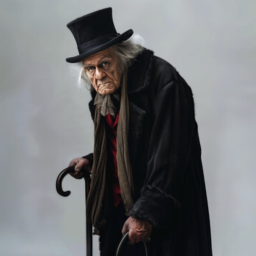
These are not the best of times for Donald Trump. Indeed, with a lengthy government shutdown and having secured the wrath of a significant portion of the American people, one might wonder how the President endures what most of us would consider dark days.
The American Psychiatric Association has deemed it unethical for psychiatrists to give a professional opinion about someone they have not themselves examined, or have received consent from in order to discuss their mental health in public statements. Known as the “Goldwater Rule,” this standard has been long accepted and honored. President Trump, however, seems to have provoked such strong emotion in many of my mental health colleagues (we might call it countertransference) that the Goldwater Rule has been disregarded and abandoned. Many prominent mental health professionals are describing the President as suffering from conditions such as Narcissistic Personality Disorder, even though they have never even met the man, let alone examined him.
Clearly, President Trump has made it difficult to for many Americans to feel sympathetic towards him. He reminds me, however, of another character who also incited the ire of many of those he encountered and was also widely considered to be unpleasant and disagreeable, Charles Dickens’ Ebenezer Scrooge. Mr. Scrooge and President Trump actually share much in common. Besides being disliked by many, they were both wealthy, curmudgeonly, seemingly unconcerned with the marginalized and disenfranchised, and immovable in their positions. Both were also difficult to countenance with mercy or sympathy since both behaved so abhorrently. But Scrooge and Trump also share another feature which is rarely considered. Both were survivors of great trauma.
In the world of trauma therapy, there has been a substantial effort to change the narrative of those whose behavior is objectionable from “What is wrong with you?” to “What happened to you?” There has been an increasing recognition that many problematic behaviors are the result of ineffective attempts to cope with the aftermath of trauma, especially traumas of childhood and disrupted attachments. Both Scrooge and Trump experienced early parental abandonment. Scrooge’s mother died while giving birth to him and his rageful and distraught father sent him away to boarding school. His only warm connection was with his sister, Fan, who died while giving childbirth to Fred, the nephew Scrooge held responsible for her death and thus punished for taking her away from him. Interestingly, President Trump may have also suffered similar trauma. Biographers have suggested that young Donald was also banished from his home and sent to military school due to his father’s disappointment in him. President Trump’s mother has been described as a “ghost” of person, and not a very strong presence in his life. The President’s older brother, Fred, died in his early 40’s from alcoholism. This was so impactful to young Donald that to this day he does not touch a drop of alcohol, and very possibly suffers from an existential terror of death.
Of course, none of this excuses bad behavior, but it helps to understand that loathsome behavior often comes from trauma and not evil. Ebenezer Scrooge became a new man following an existential confrontation with his own mortality. He went from being the most hated man in town to being one of its finest citizens. Dickens’ tale is one of the most powerful transformation stories I know. Perhaps, President Trump will also experience such a conversion. Humbug? Perhaps. Nevertheless, it would probably be beneficial to the mental health and well-being of us all if we could remember that no one gets through this life unscathed, and we are all fighting some degree of inner turmoil and personal angst. While this may not be the best of times for President Trump or our nation, it is likely not the worst of times either. If we are able to view humanity, and our President, through softer eyes, the world becomes less hateful and ugly. Survivors of trauma are often hard to recognize, but they mingle among us. It helps to remember the oft unattributed quote to “be kind, for we are all fighting a hard battle.” This was certainly true for Ebenezer Scrooge. I suspect it is true for Donald Trump, as well.
The author is Dr. Daniel N. Watter, a clinical and forensic psychologist in Parsippany, New Jersey and Wellington, Florida.
drwatter@morrispsych.com














